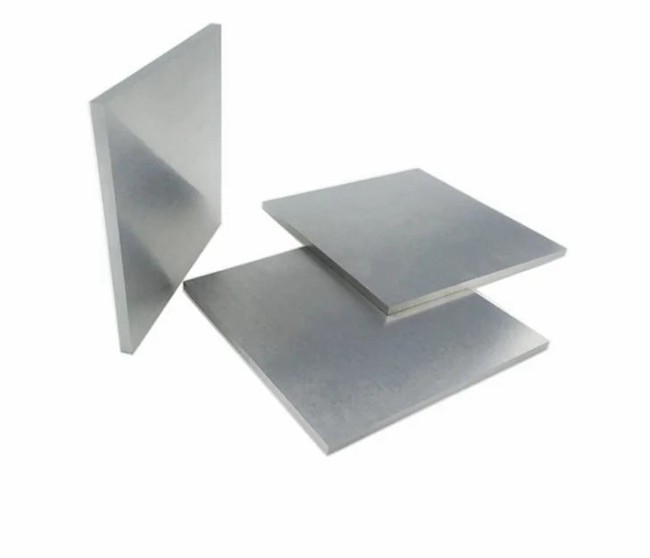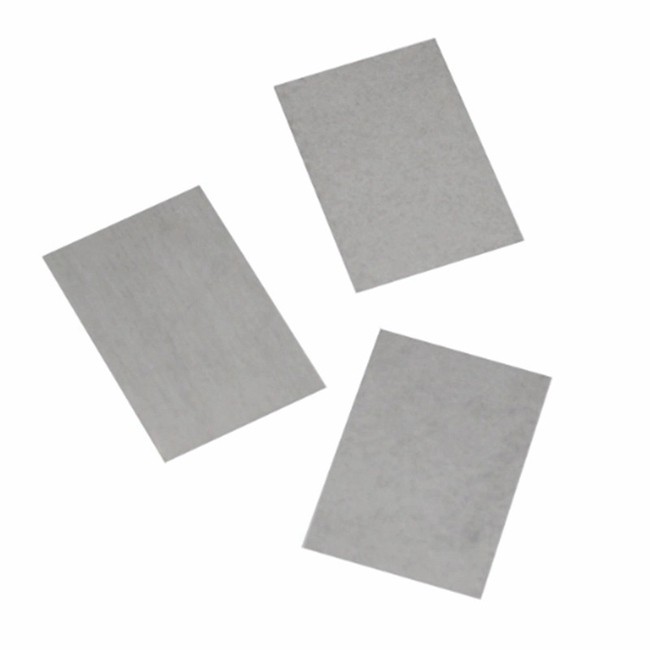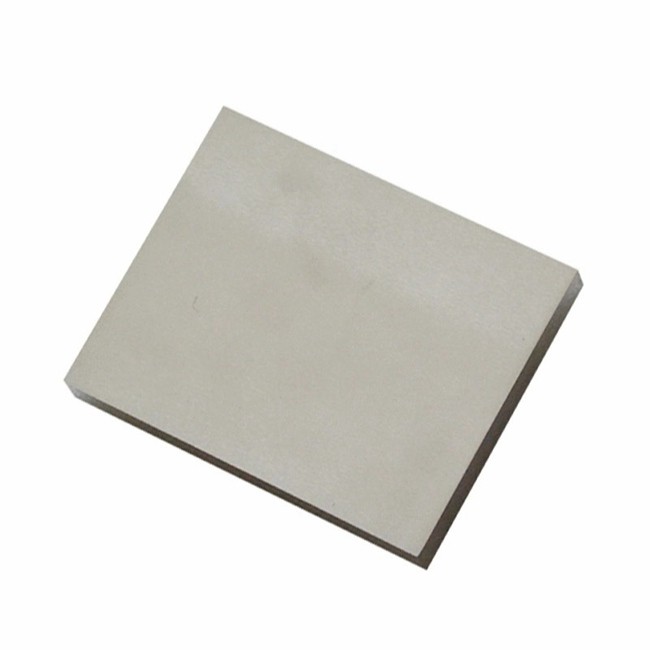Customized Carbide Sheet Tungsten Steel Plate for Mold Making
Product description
Tungsten plates usually appear steel gray or silver white, with a smooth surface and high hardness. Tungsten is an extremely hard metal, so tungsten sheet inherits this characteristic and has excellent wear resistance and compressive strength. Tungsten has an extremely high melting point of 3422 degrees Celsius, the highest of all metals, which enables tungsten sheet to maintain stable performance in high temperature environments. Tungsten sheet is not subject to air erosion at room temperature and has good corrosion resistance to a wide range of chemicals.

Tungsten alloy plates also have good radiation protection properties. Due to its high density and high absorption properties, tungsten alloy plate can effectively absorb and block X-rays, γ-rays and other radiation, so it is widely used as a radiation shielding material in fields such as medical equipment and nuclear industry. Tungsten alloy plate plays an important role in many fields with its high density, high strength, high hardness, good abrasion resistance, thermal stability, corrosion resistance and radiation protection properties.

Tungsten alloy plates also have good mechanical properties, including high strength, high hardness and good wear resistance. These properties make tungsten alloy plates widely used in machining, mold making and other fields, and can withstand high loads and high abrasion working environments. Tungsten alloy plates also have excellent thermal stability and corrosion resistance. The high melting point of tungsten allows the alloy plate to maintain good performance in high temperature environments, while its resistance to a wide range of chemicals allows it to work in harsh chemical environments, such as applications in chemical equipment and nuclear energy facilities.

In the field of nuclear energy, tungsten alloy plate is especially widely used. It can be used as a structural material for nuclear reactors, such as the core and reactor vessel lining; at the same time, its high density and high absorption properties make it a radiation shielding material for nuclear energy facilities, which is used to reduce the impact of radiation on the interior of the facility and the surrounding environment. In addition, tungsten alloy sheet is also used to manufacture components such as cladding and absorber rods for nuclear fuel elements to ensure the safe operation of nuclear reactors.

The density of tungsten alloy plate is extremely high, generally between 16.5~19.0g/cm³, which is equivalent to more than twice the density of steel. This characteristic gives it excellent tensile strength and compression resistance. The tensile strength of W-Ni-Fe high-density alloy in sintered state can be up to 800~1000MPa, and the strength can be further increased to 1300~1500MPa after heat treatment and deformation processing.

Recommended products



